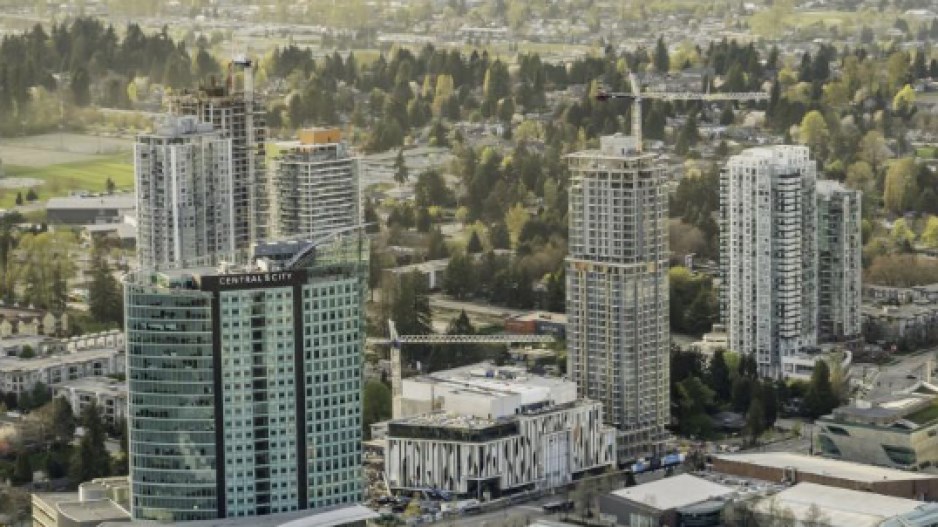A panel of Metro Vancouver city managers say office space shouldn’t be sacrificed for housing, noting that the same people who need homes in the region also need places to work.
“Clearly there’s a housing crisis. But I think we really have to be careful about jeopardizing our job space to solve the housing,” said Vancouver city manager Paul Mochrie, speaking as part of a panel commercial real estate association NAIOP Vancouver on June 22. “If we’re going to welcome a million people to the region, people are going to have to have a place to work. That’s critical.”
While office vacancies in Metro Vancouver have been trending into the double-digits, with CBRE Ltd. reporting downtown Vancouver at 10.4 per cent at the end of the first quarter while suburban vacancies averaged 6.2 per cent – the lowest in Canada – maintaining a balance between office and residential construction has several benefits.
“The opportunity to work close to home is such a component of the overall cost of living, and that’s one way to get at the affordability challenge,” Mochrie said. “[And] if we have a million more people having to travel around the region to get from home to work, the transportation infrastructure implications of that are massive.”
In short, a balance of commercial and residential space is essential to the region’s overall health, even if certain uses rise to prominence at any one time.
“This notion of being able to preserve job space and have that strategically distributed through the locations around the region as contemplated in our regional plan is critica,” Mochrie said.
His comments echoed those of Vincent Lalonde, city manager for Surrey since 2014, and was challenged by panel moderator Blaire Chisholm regarding Surrey’s requirement that mixed-use projects in the city’s core include 1 FSR of density for office space, noting that this can make projects harder to finance and limit the supply of housing.
“It is challenging to build an office building now, for sure,” Lalonde said. “There is vacancy because of COVID; COVID was a drastic change. We went from all being in office towers to suddenly being told by the provincial health officer that we needed to do all work outside of the office.”
While a vacancy rate of 10 per cent is significant, Lalonde says there’s renewed uptick in demand despite the return of space to the market.
“We’re kind of trying to see what kind of bounceback there is. But we do believe it is important to keep some land designated for office,” he said. “We’re not trying to block anybody, but we’re seeing what the sweet spot is so we don’t find ourselves in five or six years [that] there’s a big demand for office but all the prime sites for office are gone.”
Moreover, the potential for residential development in downtown Surrey is huge, with 75,000 units slated for the core. Right now, there are 20 towers on the go he said, and while the requirements for commercial space are limited to just 6 per cent of the core. And even within this area, the sites requiring an elevated office component (under an interim policy introduced in 2019) are very few.
“The interim policy in place since 2019 called for 3.5 FAR to office,” Lalonde said. “A typical project in that area will get 12 FAR, so we’re just talking about a quarter.”
Sean McGill, city manager for Delta, noted that requirements will also differ according to municipality. The office space required in suburban Tsawwassen is very different from that required in more-rural Ladner or North Delta on the city’s boundary with Surrey.
“Our realities are quite different,” he said, noting that Delta has less than 1 per cent of the region’s office space. “We’re neighbours with Surrey and we have no minimum or required office space with development.”
Instead, the city works with developers on a project-by-project basis to determine requirements, whether it’s more medical and professional space in Tsawwassen or a combination of retail and office space in North Delta.
McGill pointed to plans for the Delta Shoppers Mall site on Scott Road as an example, where owner Value Property Group proposes to build 877 residential units including condos, seniors housing and purpose-built rentals; 80,752 square feet of retail space and 125,839 square feet of office space and various amenities.
“We think we need some office space. It’s being proposed by developers,” McGill said.



